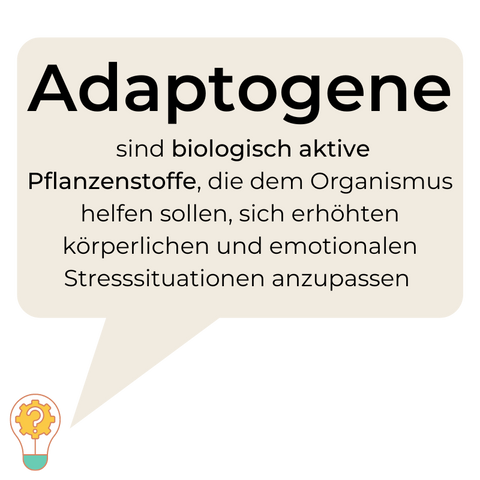Ashwagandha (Withania somnifera), also known as " sleeping berry " or "winter cherry", is a medicinal plant that has been traditionally used in Ayurvedic medicine for centuries. 

The plant is widespread in Spain, Greece, China and in the Middle East and South Asia and contains a large number of active phytochemicals.
The effects of these ingredients have recently been examined in numerous studies and the benefits and uses of Ashwagandha have been observed.
_
What Happens When You Take Ashwagandha?
.
One of Ashwagandha's most important properties as a natural adaptogen is its calming effect.
Ashwagandha has been shown in several studies to reduce the activity of certain brain regions responsible for anxiety. This can help reduce stress and anxiety and improve mood .

Ashwagandha may also help boost the immune system . One study showed that ashwagandha can increase certain white blood cell counts, which may help fight infection and disease better.
In addition, Ashwagandha can also help treat joint discomfort and inflammation . Some studies have shown that ashwagandha can reduce pain and inflammation in arthritis sufferers.
.
What other positive properties are attributed to Ashwagandha?
_
Another property of ashwagandha that may be important for improving sleep is its ability to regulate hormonal balance in the body. As an adaptogen, ashwagandha may help reduce the production of stress hormones like cortisol, which may contribute to improved sleep quality.
Furthermore, Ashwagandha can also stimulate the production of sleep hormones such as melatonin and serotonin, which can also help to improve sleep. This can be particularly beneficial for people who suffer from sleep disorders such as difficulty falling asleep or insomnia.
Additionally, taking ashwagandha can also help slow the heart rate and relax muscles, which can also contribute to deeper and more restful sleep.
Overall, Ashwagandha can be a valuable aid in improving sleep due to its calming and relaxing effects. It can help reduce stress and anxiety, regulate hormonal balance and stimulate the production of sleep hormones, which can ultimately help improve sleep quality.
.
What should be considered when taking Ashwagandha?
- It should be a high-quality Ashwagandha extract (e.g. KSM 66® , as all the ingredients are extracted from the root here) - as in our SWEET DREAMS, for example
- The ashwagandha extract should have a withanolide content (main active ingredient in ashwagandha) of at least 5 mg
- Most benefits have been observed in studies with a minimum intake of 150mg-300mg ashwagandha extract
- Every 4-5 weeks the intake can be interrupted for a week
_
So all in all, a lot of advantages. Does Ashwagandha have any side effects?
_
Ashwagandha has been used as a very safe medicinal plant in Ayurvedic medicine for centuries and is usually well tolerated.
Only when taking larger amounts were isolated complaints, such as Abdominal pain, diarrhea and nausea observed .
In general, children, pregnant and breastfeeding women should not take Ashwagandha without prior medical consultation. Likewise, if you have cardiovascular or other health problems (e.g. with the thyroid gland), you should discuss the intake with a doctor in advance.
Sources (amongst others):
1) Tharakan, A.; Shukla, H.; Benny, IR; Tharakan, M.; George, L.; Koshy, S. Immunomodulatory Effect of Withania somnifera (Ashwagandha) Extract—A Randomized, Double-Blind, Placebo Controlled Trial with an Open Label Extension on Healthy Participants. J.Clin. medication 2021 , 10 , 3644. https://doi.org/10.3390/jcm10163644
1) Tharakan, A.; Shukla, H.; Benny, IR; Tharakan, M.; George, L.; Koshy, S. Immunomodulatory Effect of Withania somnifera (Ashwagandha) Extract—A Randomized, Double-Blind, Placebo Controlled Trial with an Open Label Extension on Healthy Participants. J.Clin. medication 2021 , 10 , 3644. https://doi.org/10.3390/jcm10163644
2) Pratte MA, Nanavati KB, Young V, Morley CP. An alternative treatment for anxiety: a systematic review of human trial results reported for the Ayurvedic herb ashwagandha (Withania somnifera). J Altern Complement Med. 2014;20(12):901-908.
3)
Lopresti AL, Smith SJ, Malvi H, Kodgule R. An investigation into the stress-relieving and pharmacological actions of an ashwagandha (Withania somnifera) extract: A randomized, double-blind, placebo-controlled study. Medicine (Baltimore). 2019 Sep;98(37):e17186. doi: 10.1097/MD.0000000000017186. PMID: 31517876; PMCID: PMC6750292.
4) Federal Institute for Risk Assessment (BfR)
